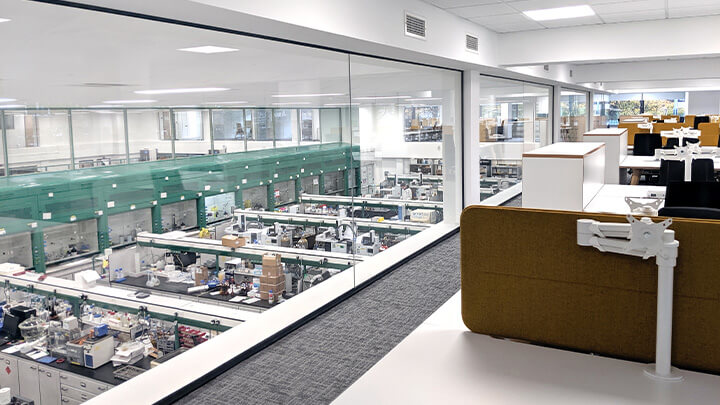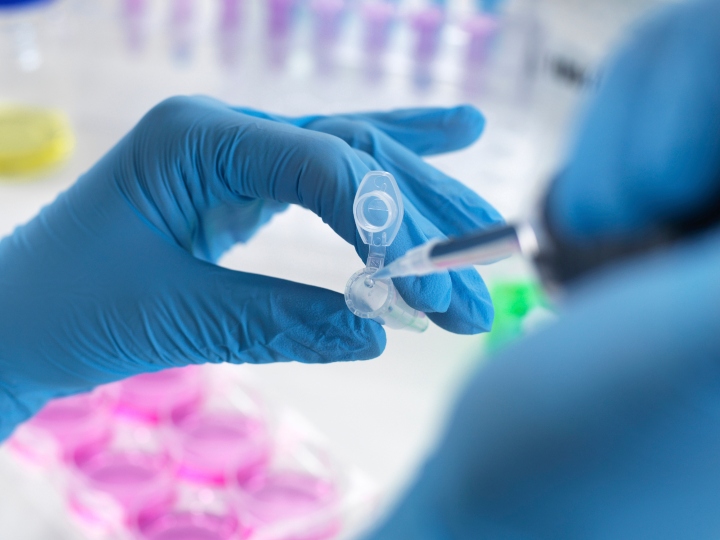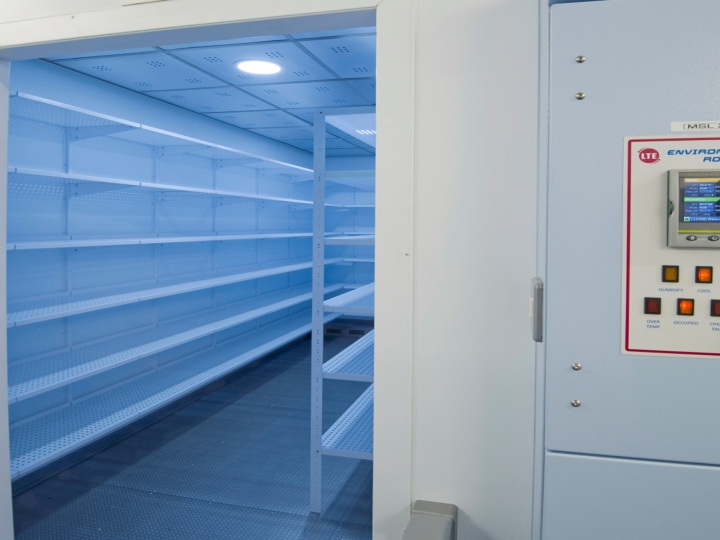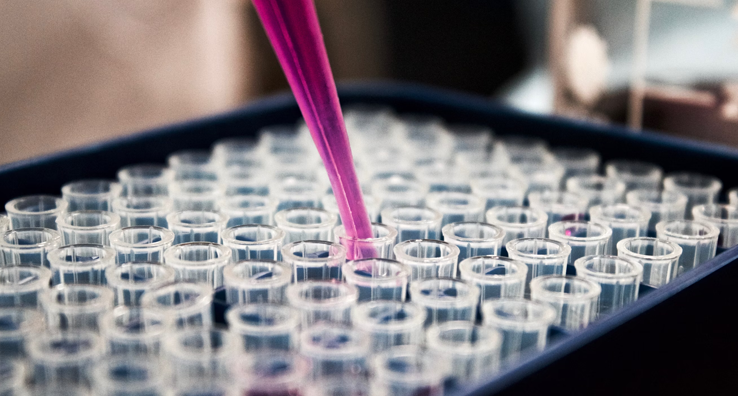Biopharmaceutical or biologic drug stability studies for proteins and antibodies including forced degradation, stability storage, structure, physicochemical and potency testing
Biopharmaceutical stability studies for biologic therapeutics are essential to assess sensitivity to factors that could cause aggregation and degradation which impacts biologic activity, product safety, and quality. To reduce the risk of degradation and maintain the biological activity of the product, suitable conditions for storage and shelf life must be established. By understanding degradation routes it is possible to establish which critical quality attributes (CQAs) are more susceptible to change throughout the lifetime of the biologic.
Changes in biopharmaceutical stability due to degradation, chemical or physical instability can alter protein folding and the protein 3-dimensional structure, affecting efficacy. A host of complex analytical methodologies may be required to determine stability and these must be justified and validated. Biological activity assays and the quantitative detection of degradation products are also required to comply with Good Manufacturing Practice (cGMP) compliant stability program. Environmental factors (such as temperature, exposure to oxygen or changes in pH), adsorption onto surfaces and interactions with excipients can all affect stability. In order to demonstrate the stability of biologics, forced degradation studies should be designed and conducted to determine stability-indicating methods suitable for ongoing stability studies.
Our scientists are adept at conducting biopharmaceutical forced degradation, accelerated stability studies, short and long-term stability studies for proteins, biosimilars, antibodies or other biologics. Our expertise in establishing stability-indicating profiles addresses potential degradation pathways for your specific biologic through stress testing and forced degradation. With expert stability-indicating analytical method development skills, we provide assurance that any changes in physicochemical properties, structure, aggregation, biological activity, visual appearance, impurities, excipient degradation, and container/closure interactions will be detected. The knowledge from forced degradation studies, in conjunction with a detailed understanding of the product and process, help to establish CQAs.
External factors such as interaction with formulation components and storage conditions can impact biophysical behaviour and higher-order structure and so it is important to characterise the impact of these factors on structure and conformational stability. We monitor the excipients which may be susceptible to degradation or may also react with the main biologic product.
Our biopharma stability experts have in-depth knowledge of relevant ICH guidelines such as Q5C, "Quality of Biotechnological Products: Stability Testing of Biotechnological/Biological Products", Q1A (R2) and ICH Q6B guidance to ensure we deliver regulatory driven stability data suitable for your biologic and regulatory submission documentation. We bring a diverse range of protein analysis techniques conducted in accordance with Good Manufacturing Practice (GMP) to meet your stability outsourcing requirements. With a global network of GMP compliant stability storage facilities, we provide fully qualified environmental chambers, fridges and freezers with continual monitoring and back-up systems.
Biopharmaceutical Stability Testing Methods:
- Peptide fingerprinting by Chromatography and Mass Spectrometry (MS)
- Peptide mapping and sequencing by LC-MS/MS including S-S (Di-sulphide) bridge mapping analysis
- Aggregation analysis
- Higher Order Structure Characterisation by Circular Dichroism (CD), Nuclear Magnetic Resonance (NMR), Infra -Red Spectroscopy (FTIR) and other methods
- Gel Electrophoresis (1-D and 2-D SDS-PAGE reducing and non-reducing)
- Western blot
- Isoelectric focusing
- Capillary electrophoresis (CE)
- Total Protein Quantification
- Carbohydrate and Glycosylation Studies
- Post-translational modifications (PTM)
- Liquid chromatographic patterns
- Immunochemistry techniques
- cGMP Cell-based Bioassays
- Spectroscopic profiles
One-Source Solutions for Biopharmaceutical Stability
Coupled with project management and regulatory support, Intertek's biopharmaceutical laboratory services drive your stability programs forward whilst our formulation development team use stability data to provide the next level of support if stability issues are observed. Our thought leaders have over 20 years’ experience in biopharmaceutical stability studies and stability testing to support across a wide range of product types; proteins, monoclonal antibodies, vaccines, PEGylated proteins, antibody drug conjugates, oligonucleotides, glycoproteins and biosimilars. Bringing quality and safety to life, we offer Total Quality Assurance expertise to help you to meet and exceed quality, safety and regulatory standards.
Related Biologics/Biosimilars Services

Intertek Pharmaceutical Services Manchester
P.O. Box 42
Hexagon Tower
Blackley
Manchester, M9 8ZS
United Kingdom
For location use: M9 8GQ
INFOGRAPHIC DOWNLOAD
With recent expansion in our global ICH stability storage network, download our infographic to get a quick overview of our capacity and conditions.
DOWNLOAD INFOGRAPHIC


